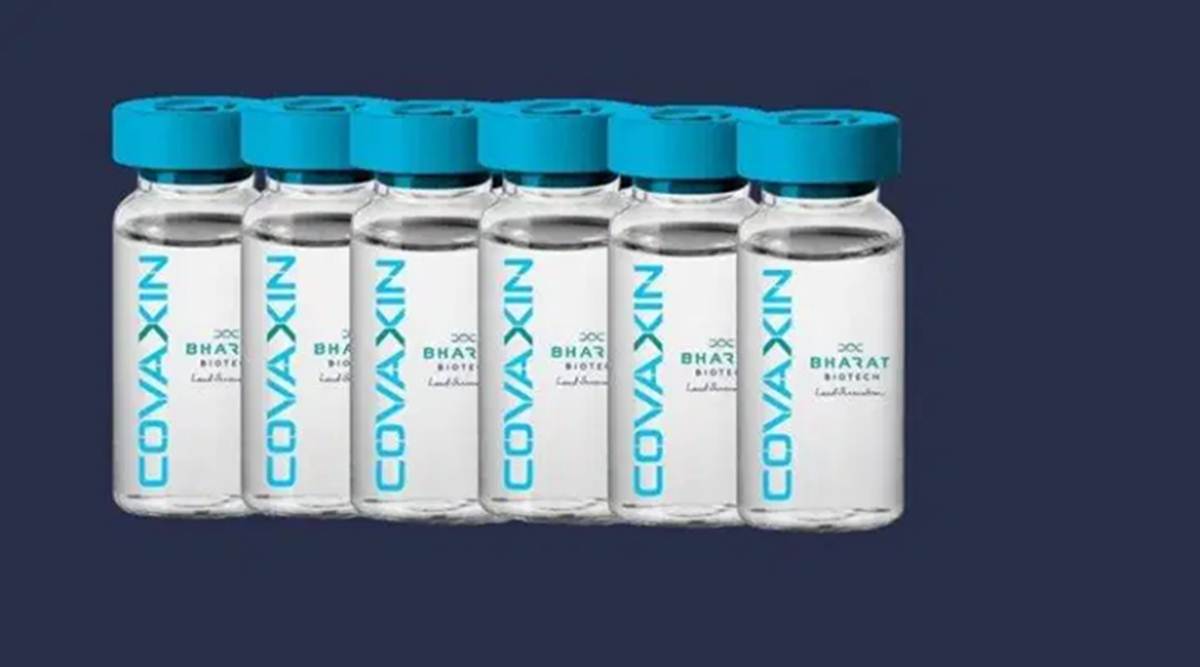
[ad_1]
 Covaxin is an “inactivated” vaccine — it works by injecting doses of the virus that have been killed aiming to prompt the body to build antibodies against it without the virus posing a threat.
Covaxin is an “inactivated” vaccine — it works by injecting doses of the virus that have been killed aiming to prompt the body to build antibodies against it without the virus posing a threat.
An ambitious humanitarian project to deliver coronavirus vaccines to the world’s poorest people is facing potential shortages of money, cargo planes, refrigeration and vaccines themselves, and running into skepticism even from some of those it’s intended to help most.
In one of the biggest obstacles, rich countries have locked up most of the world’s potential vaccine supply through 2021, and the US and others have refused to join the project, called Covax.
“The supply of vaccines is not going to be there in the near term, and the money also isn’t there”, warned Rohit Malpani, a public health consultant who previously worked for Doctors Without Borders.
Covax was conceived as a way of giving countries access to coronavirus vaccines regardless of their wealth.
It is being led by the World Health Organisation, a UN agency; Gavi, a public-private alliance, funded in part by the Bill & Melinda Gates Foundation, which buys immunizations for 60% of the world’s children; and the Coalition for Epidemic Preparedness Innovations, or CEPI, another Gates-supported public-private collaboration.
Covax’s aim is to buy 2 billion doses by the end of 2021, though it isn’t yet clear whether the successful vaccine will require one dose or two for the world’s 7.8 billion people. Countries taking part in the project can either buy vaccines from Covax or get them for free, if needed.
One early problem that emerged: Some of the world’s wealthiest nations have negotiated their own deals directly with drug companies, meaning they don’t need to participate in the endeavor at all. China, France, Germany, Russia and the US don’t intend to join.
And so many rich countries bought vaccines from manufacturers, before the shots have even been approved, that they have already snapped up the majority of the vaccine supply for 2021.
“As a continent of 1.2 billion people, we still have concerns”, Africa Centers for Disease Control and Prevention director John Nkengasong told reporters Thursday.
He praised COVAX for the solidarity it represents but said there were serious questions about allocation, saying African nation’s COVID-19 envoys are meeting directly with vaccine manufacturers to ask “if we came to the table with money, how would we get enough vaccines to cover the gap?” African nations are preparing as if vaccines will arrive in January or February, he said, “and will roll out with speed.”
The European Union has contributed 400 million euros ($469 million) to support Covax, but the 27-country bloc won’t use Covax to buy vaccines, in what some see as a vote of no-confidence in the project’s ability to deliver. Instead, the EU has signed its own deals to buy more than 1 billion doses, depriving Covax of the bulk negotiating power of buying shots for the continent.
Gavi, WHO and CEPI announced in September that countries representing two-thirds of the world’s population had joined Covax, but they acknowledged they still need about $400 million more from governments or elsewhere. Without it, according to internal documents seen by The Associated Press before the organization’s board meeting this week, Gavi can’t sign agreements to buy vaccines.
Covax did reach a major agreement this week for 200 million doses from the Indian vaccine maker Serum Institute, though the company made clear that a large portion of those will go to people in India.
By the end of next year, Gavi estimates the project will need $5 billion more.
Covax said negotiations to secure vaccines are moving forward despite the lack of funds.
“We are working with the governments who have expressed interest earlier to ensure we receive commitment agreements in the coming days”, Gavi’s Aurelia Nguyen, managing director of Covax, said. She added that nothing similar has ever been attempted in public health.
Covax “is a hugely ambitious project”, she said, “but it is the only plan on the table to end the pandemic across the world.” Still, the project is facing doubts and questions from poor countries and activists over how it will operate and how effective it will be.
Dr. Clemens Auer, who sits on WHO’s executive board and was the EU’s lead negotiator for its vaccine deals, said there is a troubling lack of transparency about how Covax will work.
“We would have no say over the vaccines, the price, the quality, the technical platform or the risks”, Auer said.
“This is totally unacceptable.” He said WHO never consulted countries about its proposed vaccine strategy and called the health agency’s goal of vaccinating the world’s most vulnerable people before anyone else a “noble notion” but politically naive.
As part of Covax, WHO and Gavi have asked countries to first prioritise front-line health workers, then the elderly, with the goal of vaccinating 20% of the world’s population.
One expensive hurdle is that many of the vaccine candidates need to be kept cold from factory to patient, according to internal documents from Gavi.
Industry has signaled that “air freight for COVID vaccines will be a major constraint.”
Another obstacle: Many of the leading vaccine candidates require two doses. That will mean twice as many syringes, twice as much waste disposal, and the complications involved in ensuring patients in remote corners of the world receive the second dose on time and stay free of side effects.

For all the latest World News, download Indian Express App.
© IE Online Media Services Pvt Ltd
[ad_2]
Source link